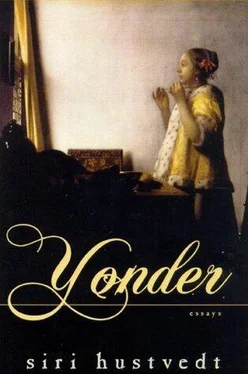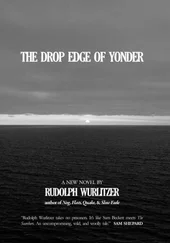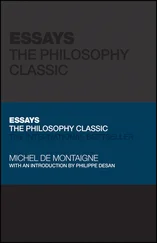The narrative presents Headstone’s psychic turmoil in terms of signs, their failure, and the disintegration that follows. In his classroom, the schoolmaster is the embodiment of the dry and empty letters that crop up everywhere in the novel. As master to children, Headstone plays a paternal role, and like other fatherly figures, his relation to signs is one that does not bother with meaning:
… the exponent drawling on to My dear Childernerr, let us say, for example, about the beautiful coming to the Sepulchre; the repeating of the word Sepulchre (commonly used among infants) five hundred times. And never once hinting what it meant.
In this passage the word sepulchre resonates as a kind of double tomb: for the pupils its meaning is absolutely vacant, while for the reader it signifies the container of a corpse. But the word also refers to the “exponent,” Headstone, whose name means a marker for the dead, a name above ground. What you don’t see are the fragments of flesh and bone that lie underground. Headstone’s relation to language reiterates the narrative’s alarm about that which cannot be articulated — a fissure between the name on the surface and the mess below. His language, in the form of repetitive lessons in the schoolroom, provides a form through which he can indulge in the unspeakable — the reenactment of his brutal attempted murder of Eugene. Like a headstone, the words conceal a ruined body:
… as he heard his classes he was always doing it again and improving on its manner, at prayers, in his mental arithmetic, all through his questioning, all through the day.
This zone behind or beneath words in Headstone is given the startlingly apt name “T’Otherest.” It is Rogue Riderhood who gives Headstone the nickname, derived from his perception of three men he links in his mind: Lightwood, whom he calls “The Governor”; Wrayburn, whom he calls “T’Other Governor”; and Headstone, who is “T’Otherest Governor” and then simply “T’Otherest.” The three designations are like successive images in a multiple mirror, terms descriptive of the increasing instability that marks the three men. But “T’Otherest” is also a sign of internal shifting in the character of Headstone. When Headstone disguises himself as Riderhood, to carry out his planned murder of Wrayburn, we are told that the clothes of his double suit him better than his own. He moves between one persona and another, between schoolmaster and T’Otherest, shucking off his identity as master to become like Riderhood, the Waterman, and is eventually sucked into the river, where identities vanish.
Headstone is a character who literally cannot contain the forces inside him: “The state of the man was murderous and he knew it. More, he irritated it with a kind of perverse pleasure akin to that which a man has in irritating a wound upon his body.” The schoolmaster’s sadism is also masochism — torturer and tortured occupy the same psychic ground. The battle tears him apart. He can’t control his movements. When he speaks to Lizzie, his face “works” horribly. The spasmodic movement of his hand is compared to “flinging his heart’s blood down before her in drops on the pavement stones.” He pounds a tombstone in the graveyard and his knuckles bleed. He suffers nosebleeds, too, that come from nowhere, and then from seizures, sudden epileptic fits. He says to Lizzie, “I have no government of myself when you are near me or in my thoughts.” The bleeding, the seizures, the words that rush from him are linked as expressions of violated boundaries, volcanic eruptions from unknown depths. His confession of rage and turmoil, hopelessly inappropriate, pours from him like a running wound. The fits affect his body as if there were no controlling consciousness; each part flies into involuntary movement. And when it is over, he cannot remember what has happened to him.
The metaphorical pulse of the novel quickens when Headstone is present. The images of ruin and filth that proliferate in relation to the novel’s landscape assume force as metaphors of pyschic reality. The inner states of delirium and unconsciousness mirror the outer conditions of fog and filth that obscure the body. Of Eugene, Headstone says, “He crushed me down in the dirt of his contempt.” As he nears death, his face turns pale, “as if it were being overspread with ashes.” Headstone loses the edges of himself, and his speech disintegrates. The narrator tells us that he has increasing difficulty “in articulating his words.” He stammers and chokes, his words are enunciated in a “half suffocated” voice. To Lizzie he confesses: “It is another of my miseries that I cannot speak of you without stumbling at every syllable, unless I let the check go altogether and run mad.” These are lapses of otherness, of a monster that finds no category except the monstrous. Like Wegg’s bone, T’Otherest cannot be articulated into a comprehensible form.
5 I and It
“This world,” Riderhood says, and “T’Other world.” The relation between the living and the dead is a frame for the novel as a whole, and the word other comes to designate the tug-of-war between the two. Otherness in Headstone and in the narrative as a whole does not signify what passes between one subject and another, between I and you, but what passes between I and what once was I but is now it. There is nothing clean about the separation between what is alive and what is dead in Our Mutual Friend, and the lack of a hygienic cut is seen in the novel’s play with pronouns. How do you refer to a corpse? Mr. Inspector, the policeman called in to investigate Gaffer Hexam’s death, gives his version of the man’s demise: “He sees an object that’s in his way of business floating. He makes ready to secure that object.… His object drifts up, before he is quite ready for it.… he falls overboard.… The object he expected in tow floats by, and his own boat tows him dead.” But the Inspector addresses the “object” he is bringing in as “you” and then further complicates matters by announcing over the corpse, “I still call it him, you see.”
The Inspector’s pronominal difficulty reverberates with Wegg’s wandering I. You has become it, but perhaps not completely so, and may still deserve to be called him. Wegg’s confusion of subject and object, which both animates his dead limb and dislocates the I as the sign of human consciousness, effectively dismantles the I/you axis of discourse, or what Emile Benveniste calls “the polarity of person,” by confusing it with “non-person” he, she, or it. Benveniste writes,
There are utterances in discourse that escape the condition of person in spite of their individual nature, that is, they refer not to themselves but to an “objective situation.” This is the domain we call the “third person.” The heart of the difference between person and non-person is seen in the fact that the polarity of person is reversible — I can always become you, and you, I, while this is not true of non-person — she, he, and it.
But all pronouns are shifters, and they have a fragility that nouns don’t have, a greater motion and flexibility that Dickens readily seizes upon in the book. When learning language, children acquire pronouns last of all words, and aphasics lose them first. Schizophrenics may confuse I and you, as if the difference between them can’t be grasped. I is not a simple designation but a complex one. It is where we all live inside language. Losing it means losing ourselves.
Jenny Wren’s alcoholic father cannot say the word I. Robbed of his paternal function by his own drunkenness, he is infantalized by his daughter, who calls him “bad boy” and “wicked child.” Mr. Dolls is a walking area of devastation, consistently referred to by the narrator as “it” rather than “he”:
Читать дальше












